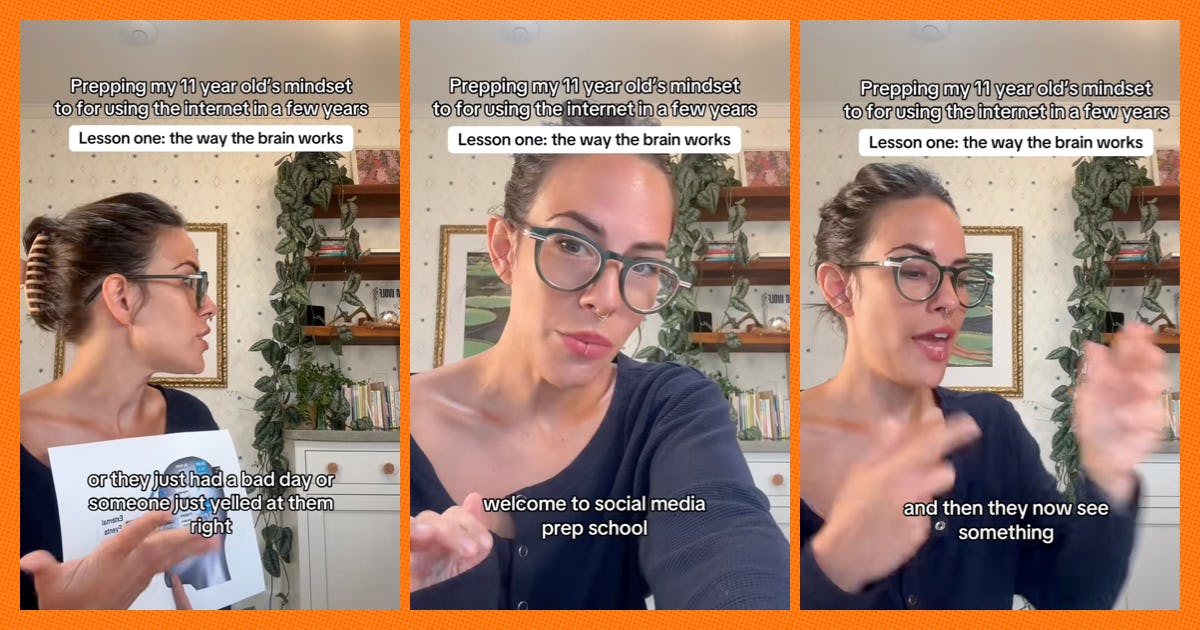
"So when somebody sees the dance video, what they're going to do is they're going to see, and then it's going to go through all of these sensations: the way that they see, hear, feel, touch, smell, all of that. And it's going to go through all of their own past experiences. So everything that they've ever been told about dancing and themselves, it'll go through what they believe about the world, if they think dancing is good or bad or silly or stupid."
"In the next few years, she's going to most likely be going to be online. And I want to prepare her for everything: how to not let any kind of comments affect her, how to believe in herself, how to show up in the most amazing way," she begins."
"How they're feeling in that moment, like if they're tired or cranky or they just had a bad day or someone just yelled at them, right?"
A parent created a Social Media Prep School to teach her 11-year-old how social media and the internet interact with the developing brain. The lessons break down how the brain filters external events and how sensations, past experiences, beliefs, and current mood shape perception of online content. The approach emphasizes preparing children to handle comments, maintain self-belief, and present themselves positively online. The curriculum starts with concrete examples, like posting a dance video, to show how viewers’ interpretations are influenced by personal history and momentary feelings. The goal is proactive digital readiness and emotional resilience.
Read at Scary Mommy
Unable to calculate read time
Collection
[
|
...
]